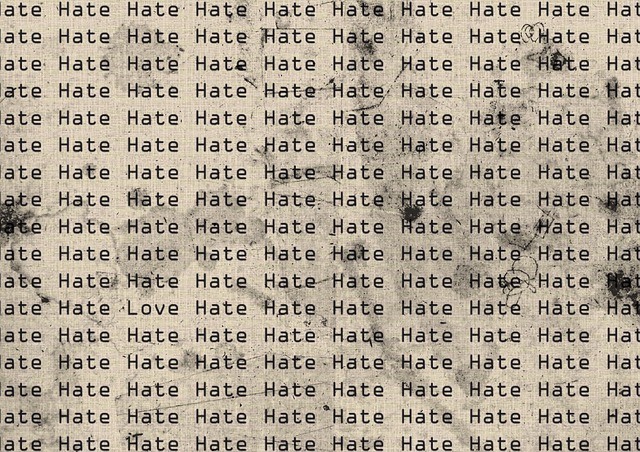by Jalees Rehman

How should social media platforms address hate speech and abusive comments while also maintaining a commitment to freedom of expression? The platform Twitter, for example, evaluates whether posts by individual users constitute abusive behavior, which it defines as “an attempt to harass, intimidate, or silence someone else’s voice”. Twitter’s rationale is that promoting dialogue and freedom of expression requires that all of its users need to feel safe in order to express their opinions, and that abusive posts by some users may undermine the safety of others. If users engage in abusive behavior, they may be asked to remove offensive posts, and if there is a pattern of recurring abusive posts, the offenders may be temporarily or permanently suspended. This rationale sounds quite straightforward, especially when a user specifically threatens or incites violence against other individuals. However, if the offenders post hateful comments denigrating members of a gender, race, sexual orientation or religion without specifically threatening individuals, then it becomes challenging to demonstrate that the victims of such hate speech are less safe. What is the impact of hate speech? Researchers have begun to address this important question and their results highlight the dangers of unfettered hate speech.
Dr. Wiktor Soral from the University of Warsaw in Poland and his colleagues recently conducted multiple studies to investigate the impact of hate speech on shaping prejudice and published their findings in the paper Exposure to hate speech increases prejudice through desensitization. In the first study, the researchers examined the views of adult Poles (computer assisted face-to-face interviews of 1,007 participants, mean age 46 years) in regards to prejudice against Muslims and members of the LGBT community because both of these groups are frequently targeted by hate speech in Poland. Participants were first given a list of anti-Muslim and anti-LGBT hate speech examples such as “I am sorry, but gay people make me feel disgusted” or “Muslims are stinky cowards, they can only murder women, children and innocent people.” The researchers were asked to rate these statements on a scale of 1 to 7, from “Not at all offensive” (1) or “Strongly offensive” (7). The researchers then asked the participants how often they heard anti-LGBT and anti-Muslim hate speech. Lastly, the researchers then assessed the prejudice level of the participants by asking them to rate whether they would (or would not) accept a member of the Muslim or LGBT communities as a co-worker, a neighbor, or as part of their family. Read more »
